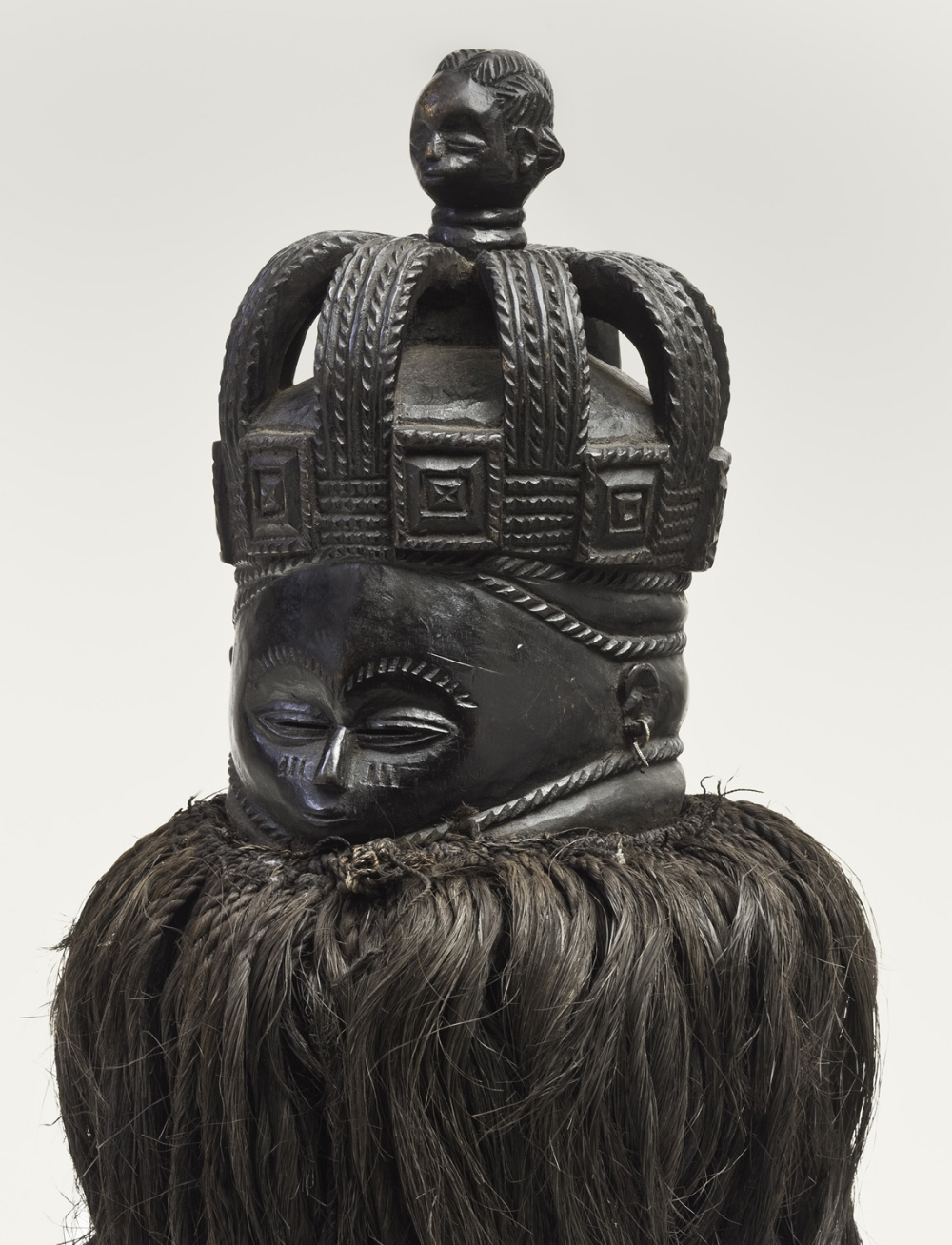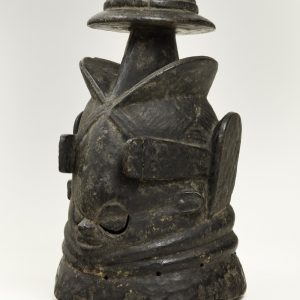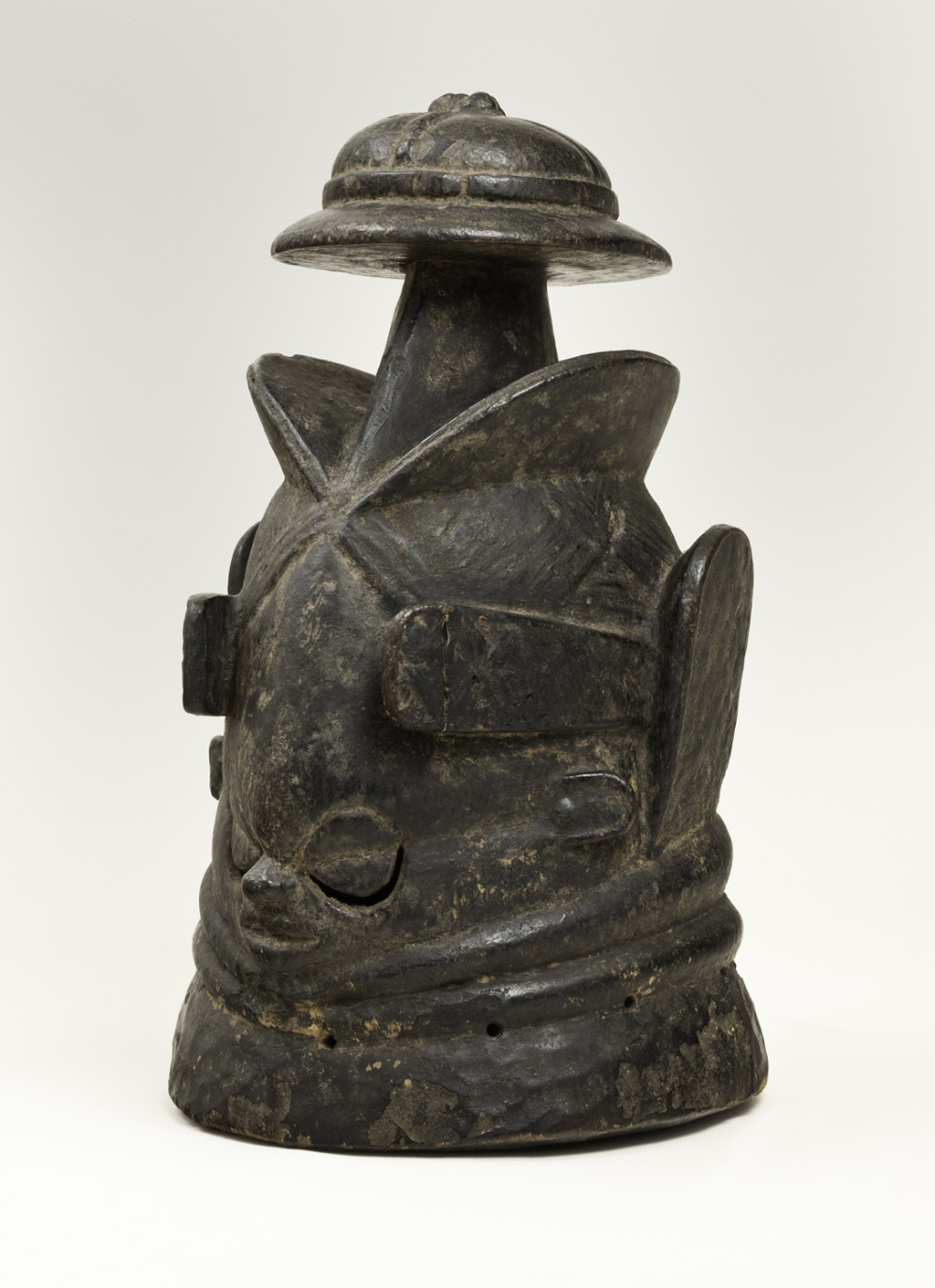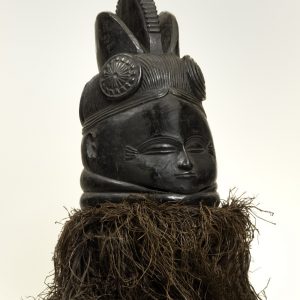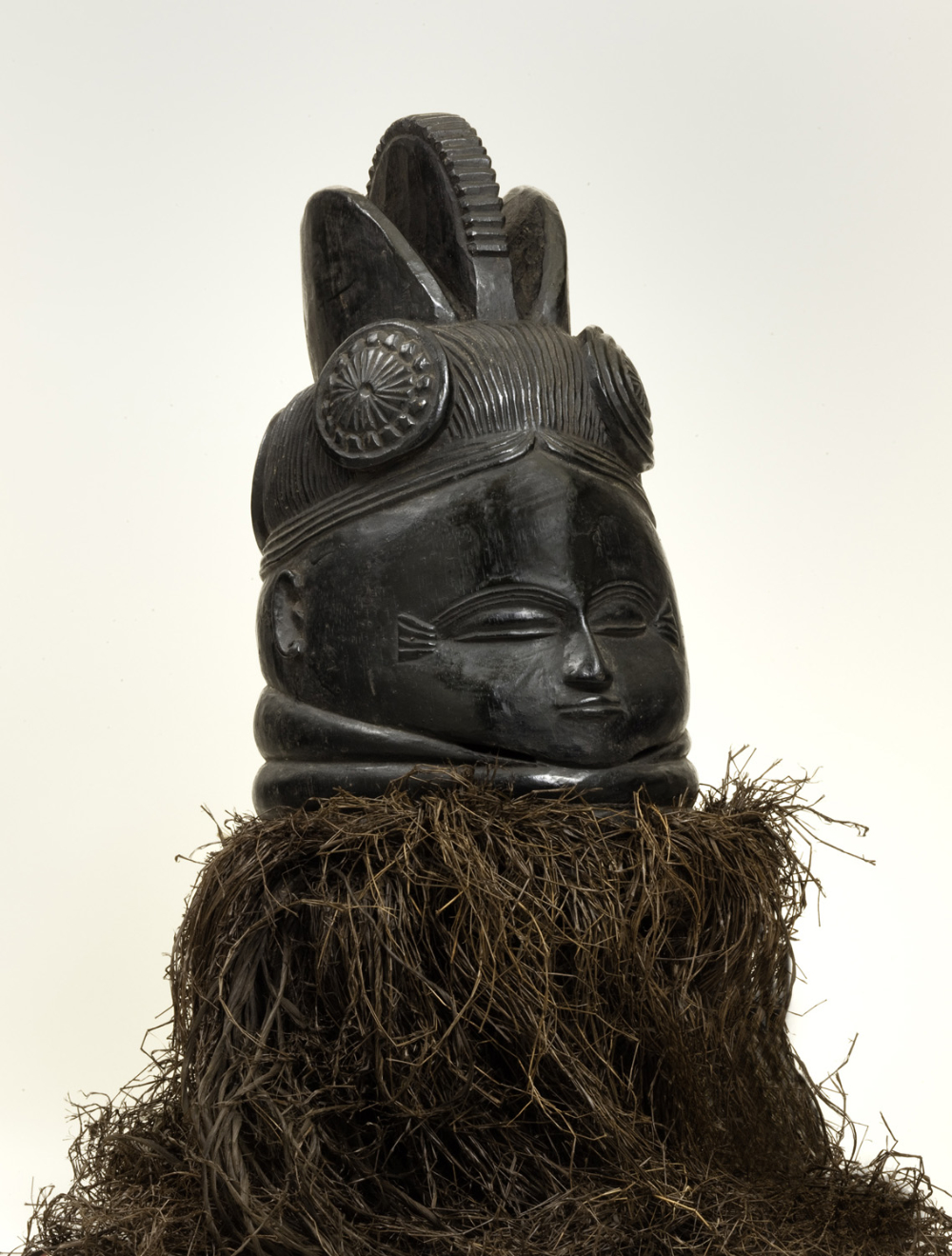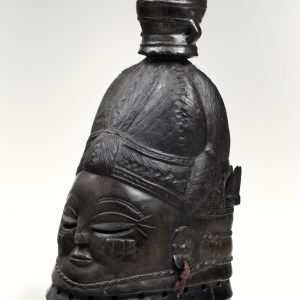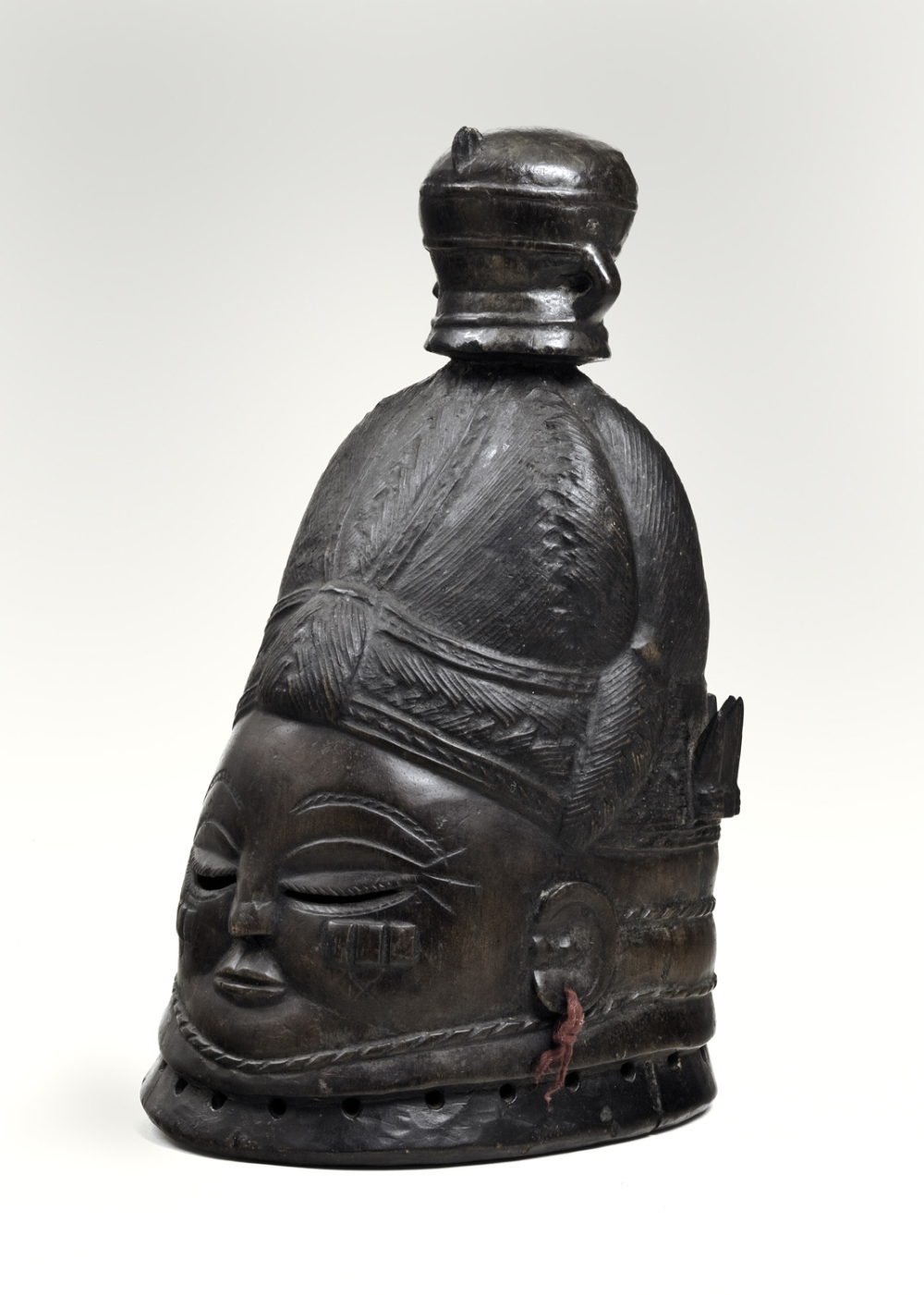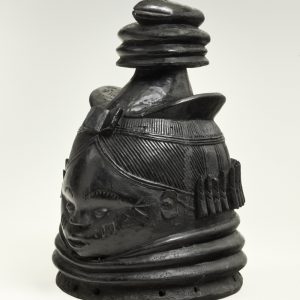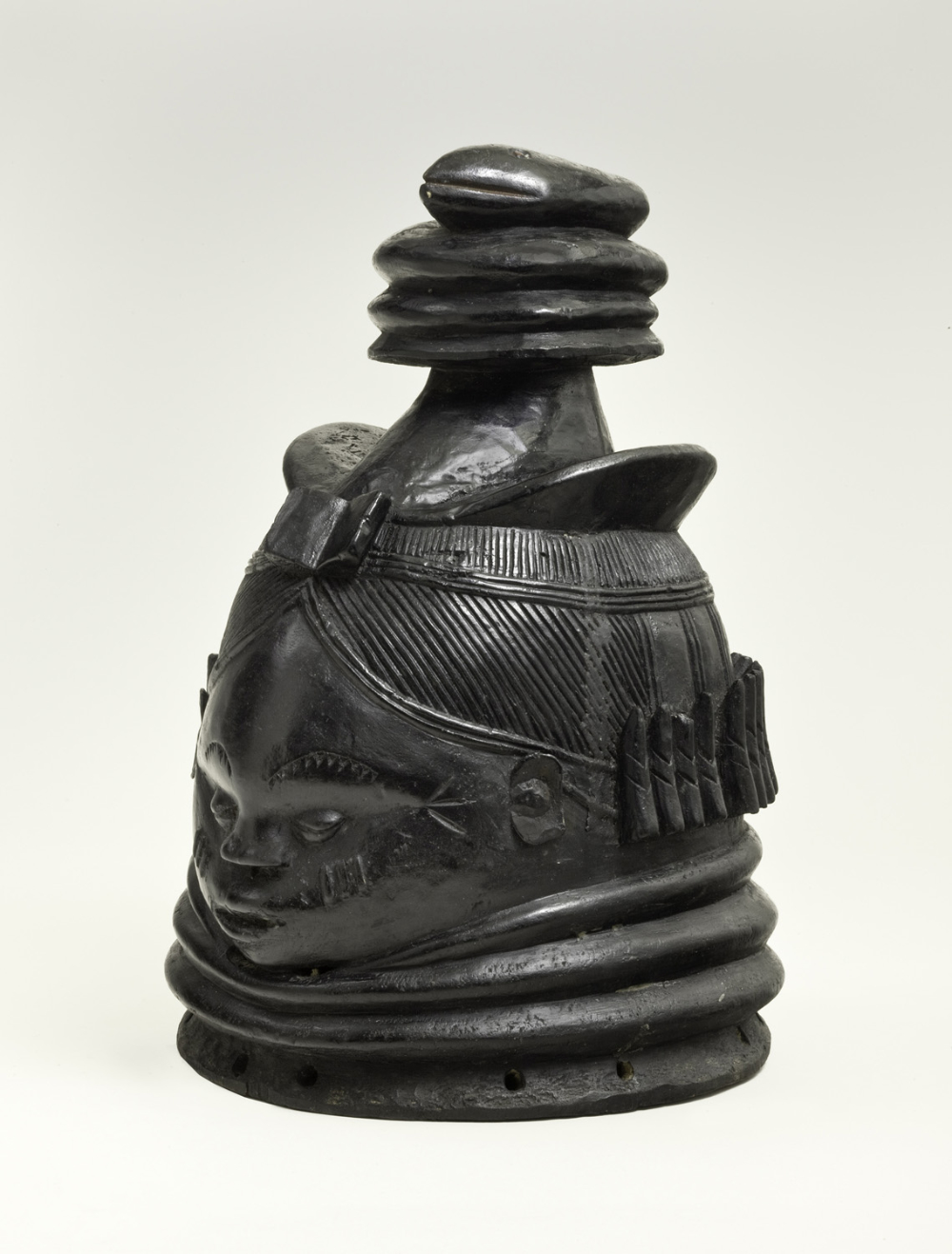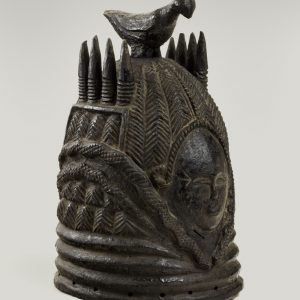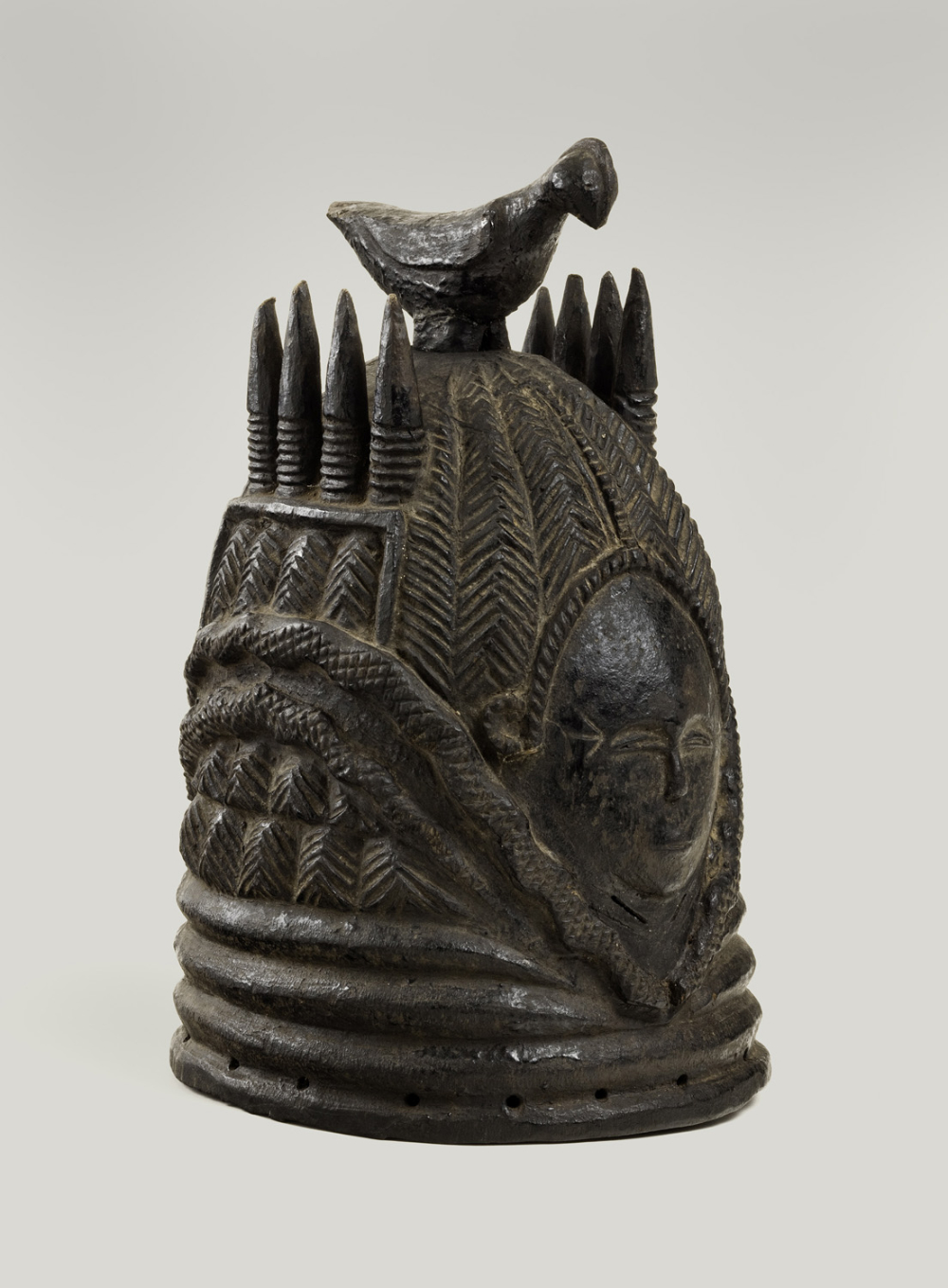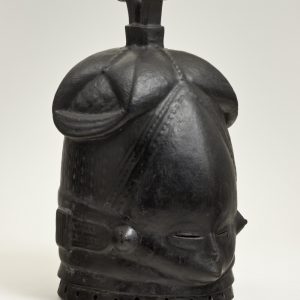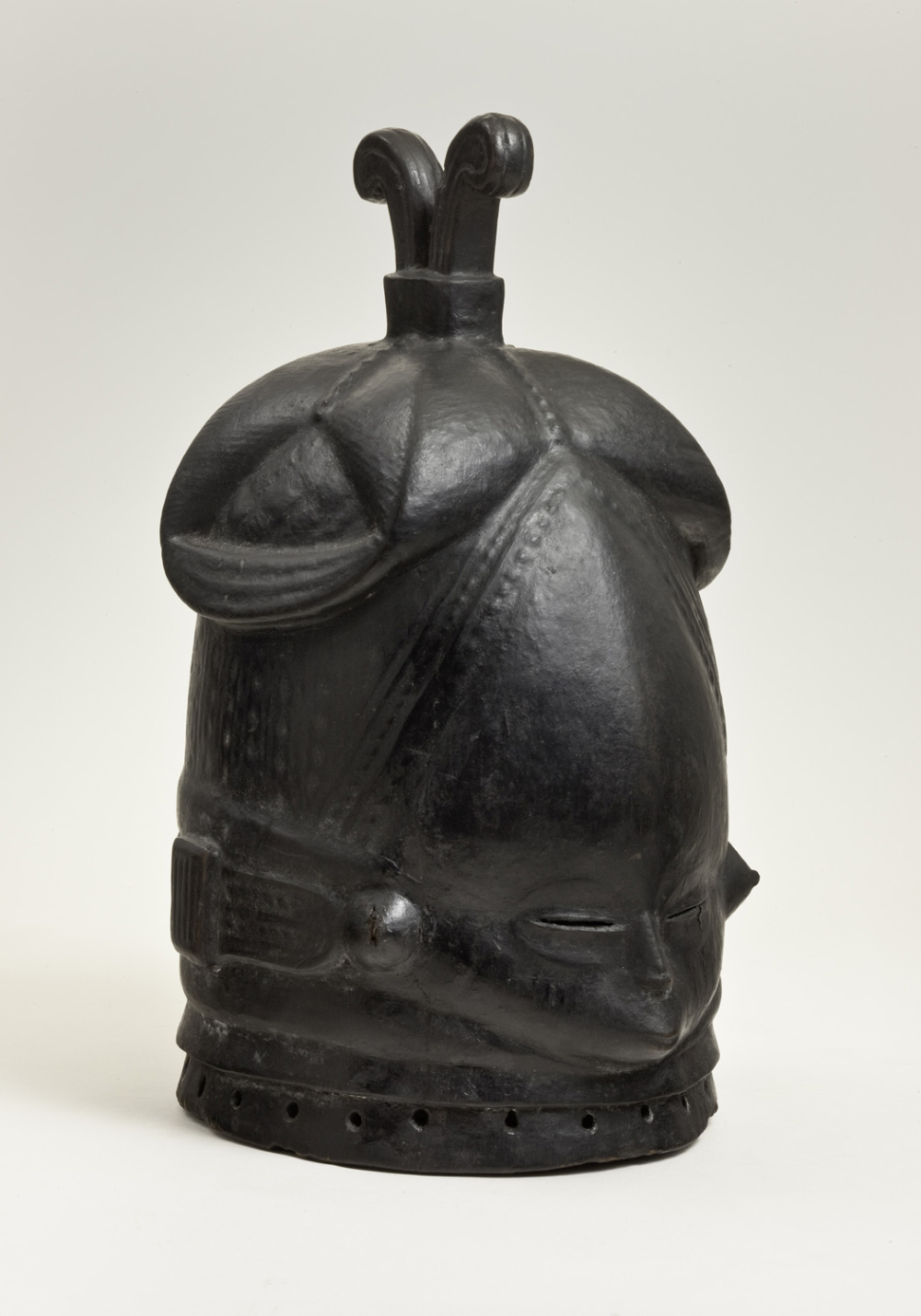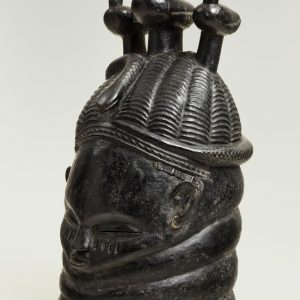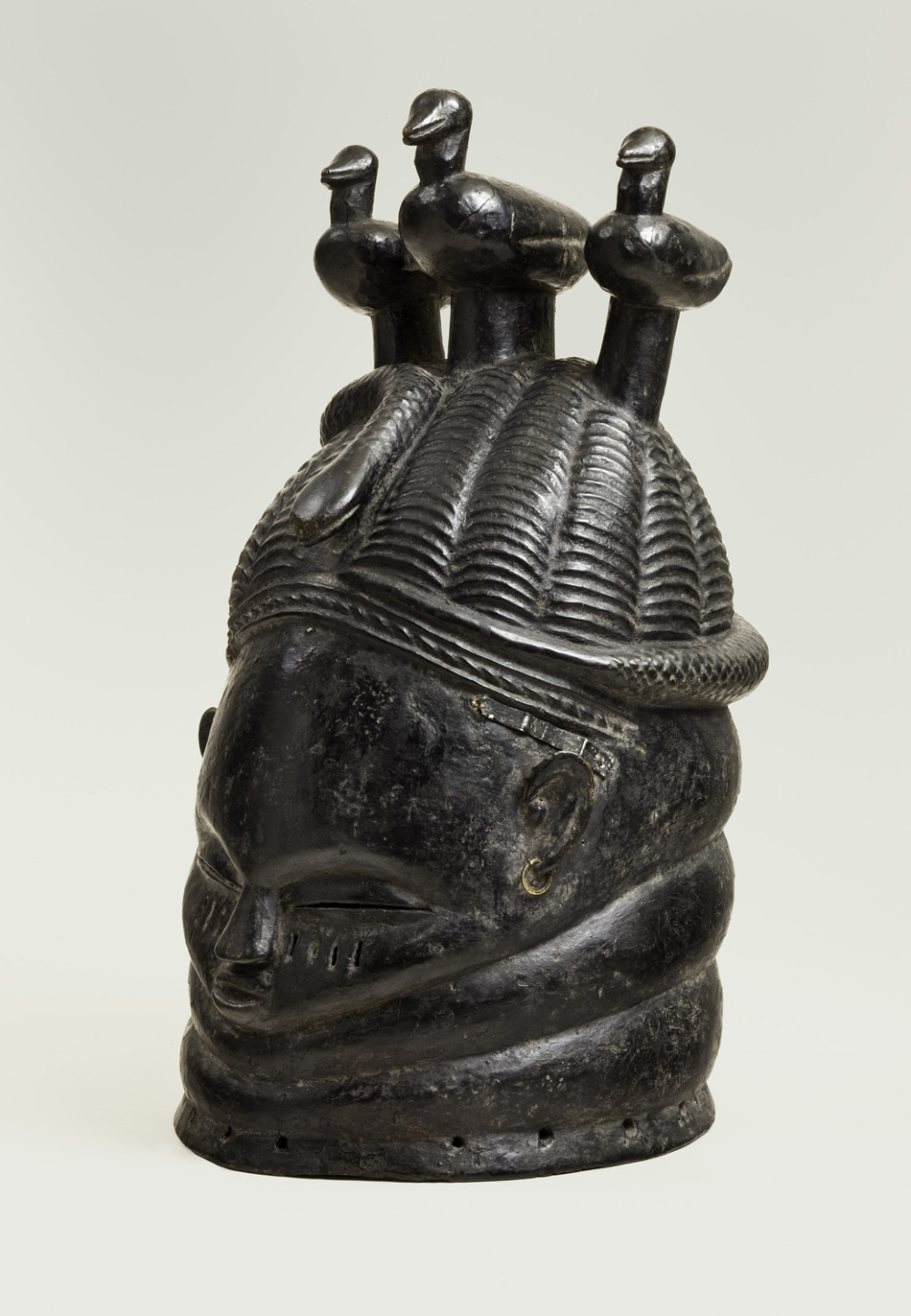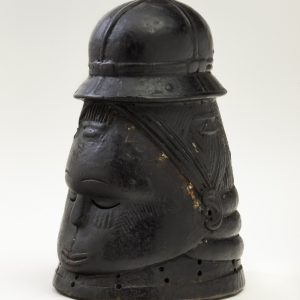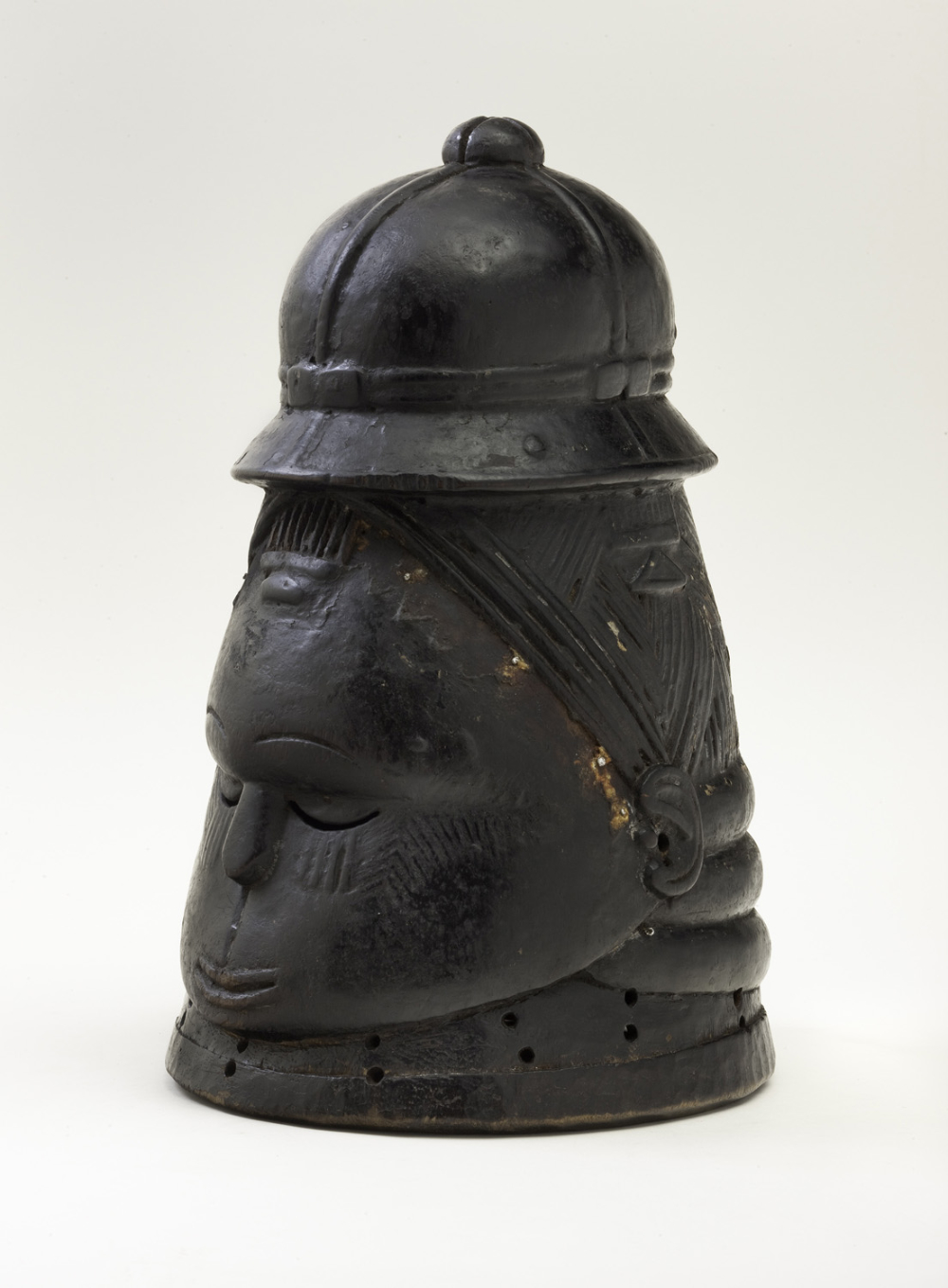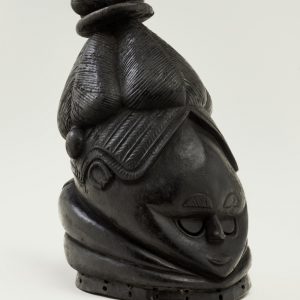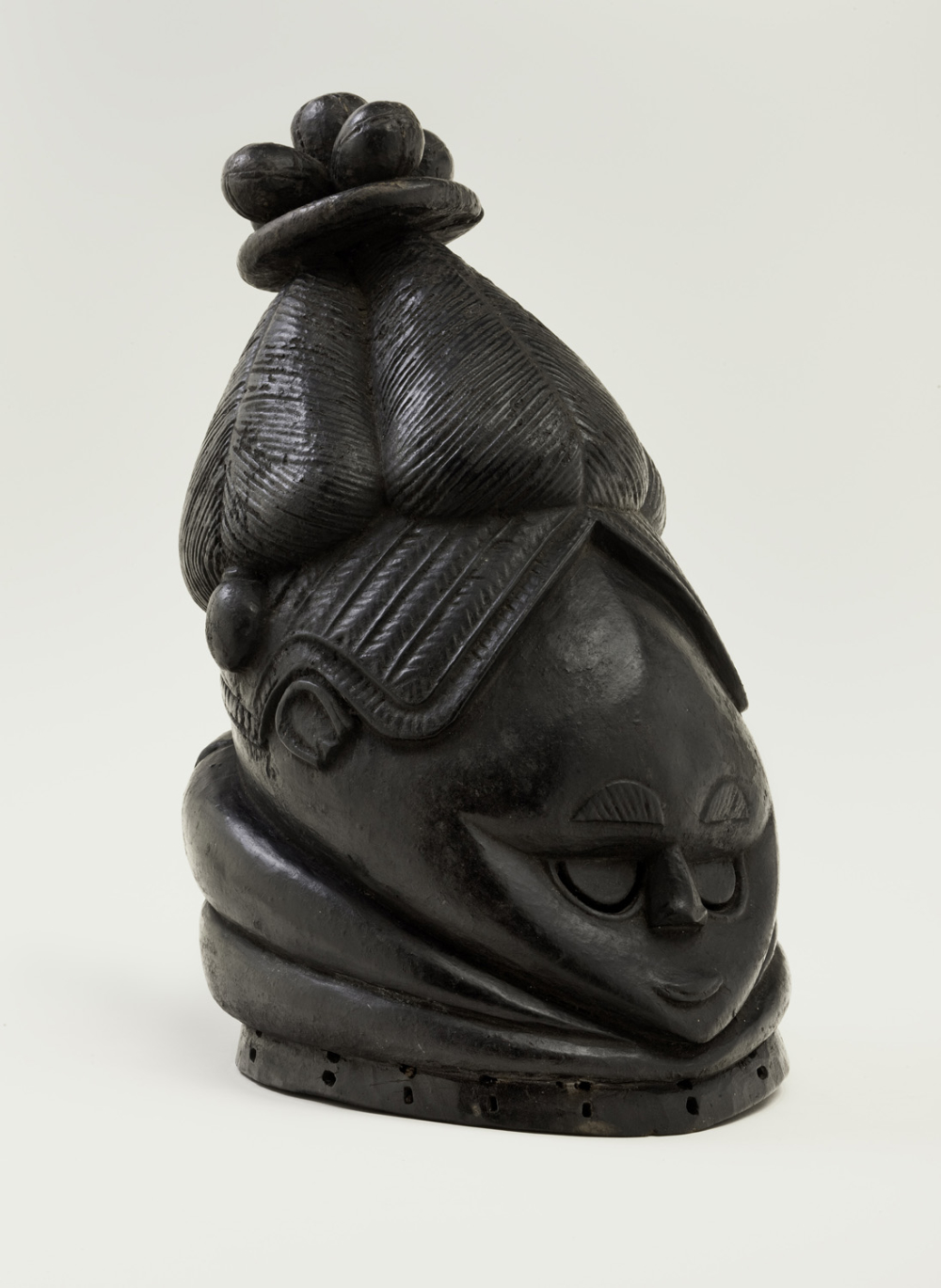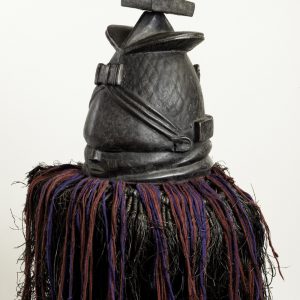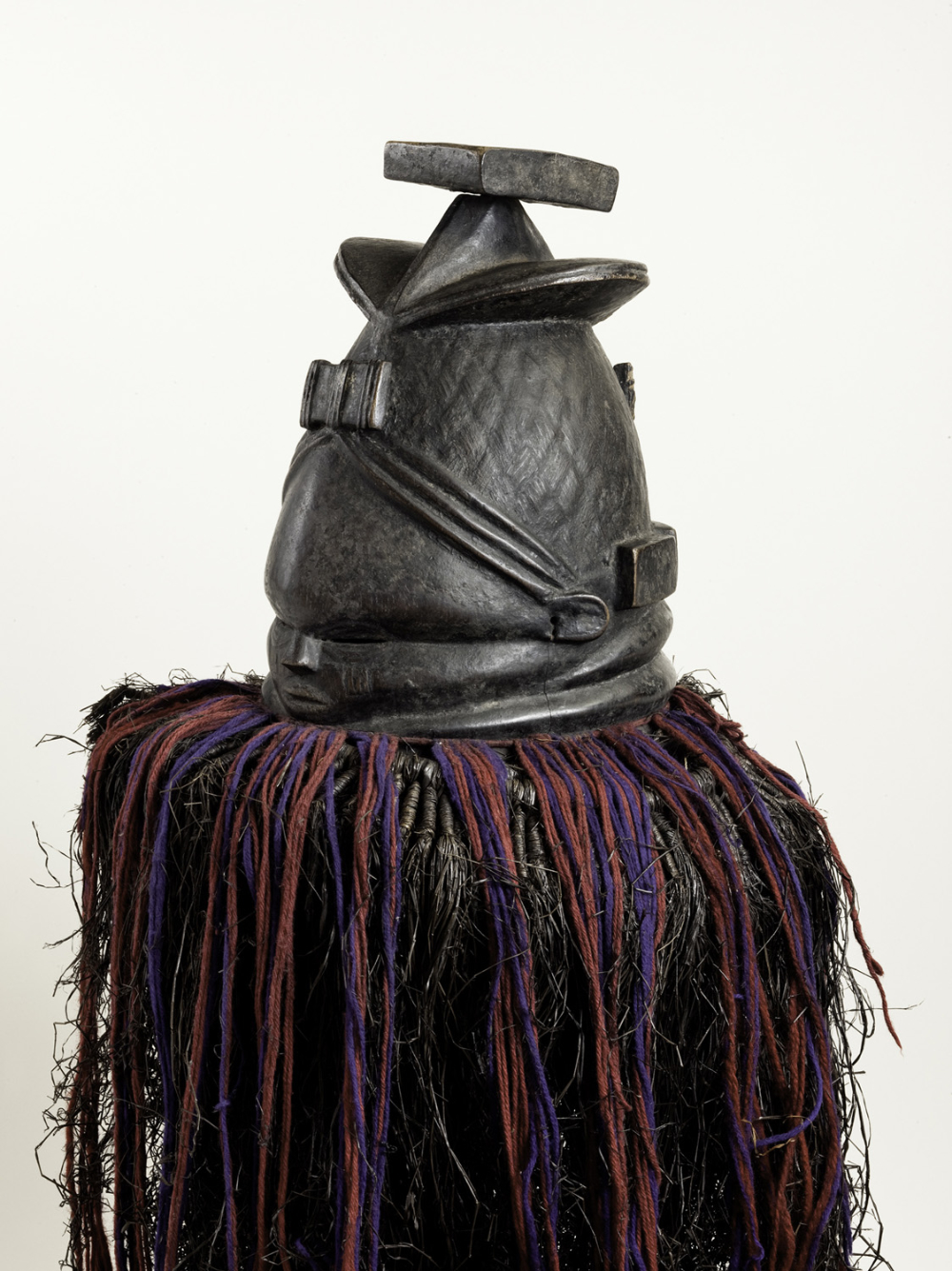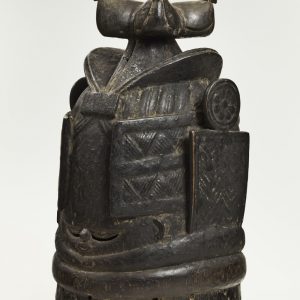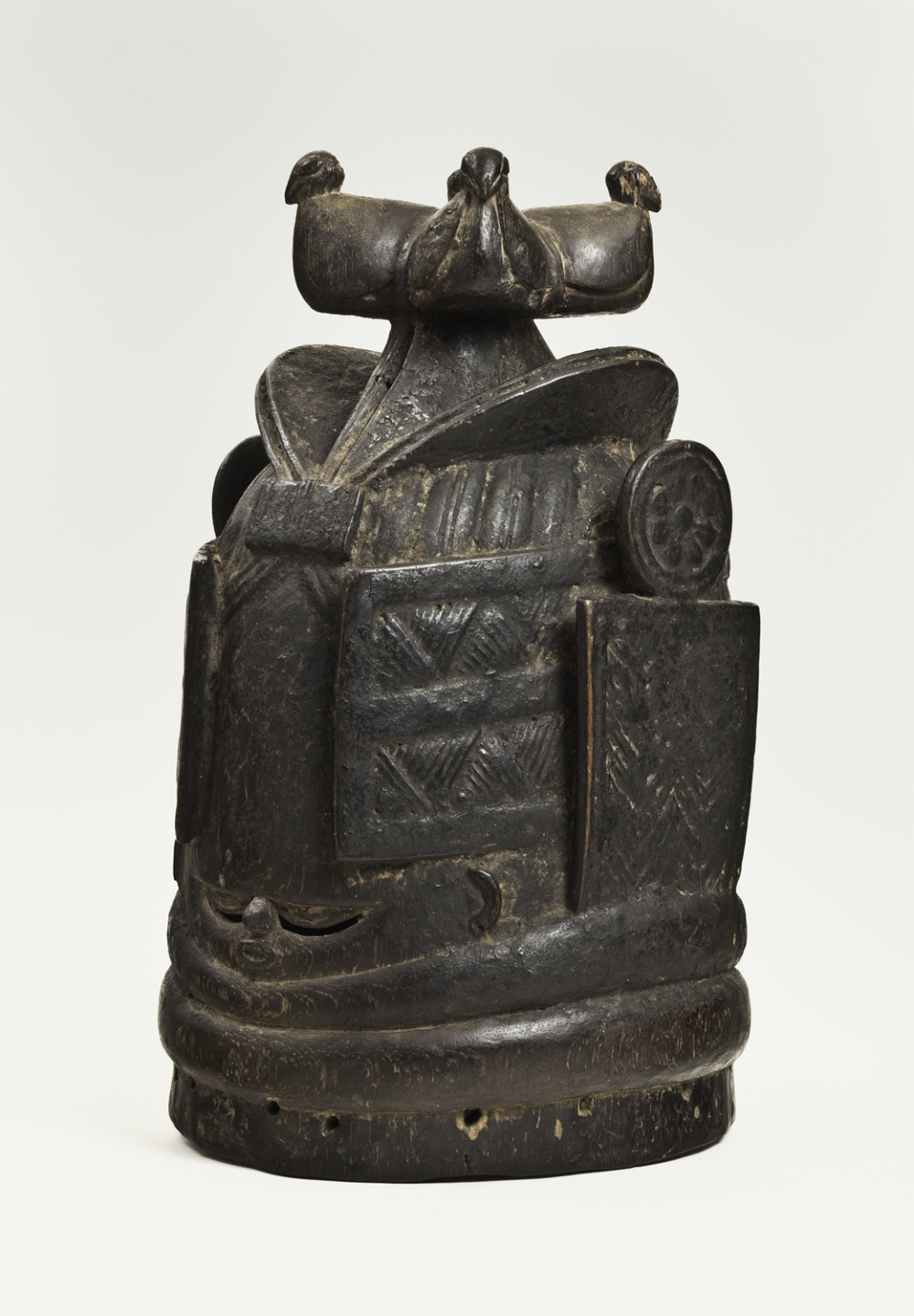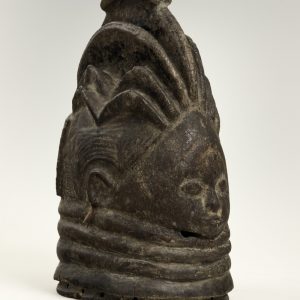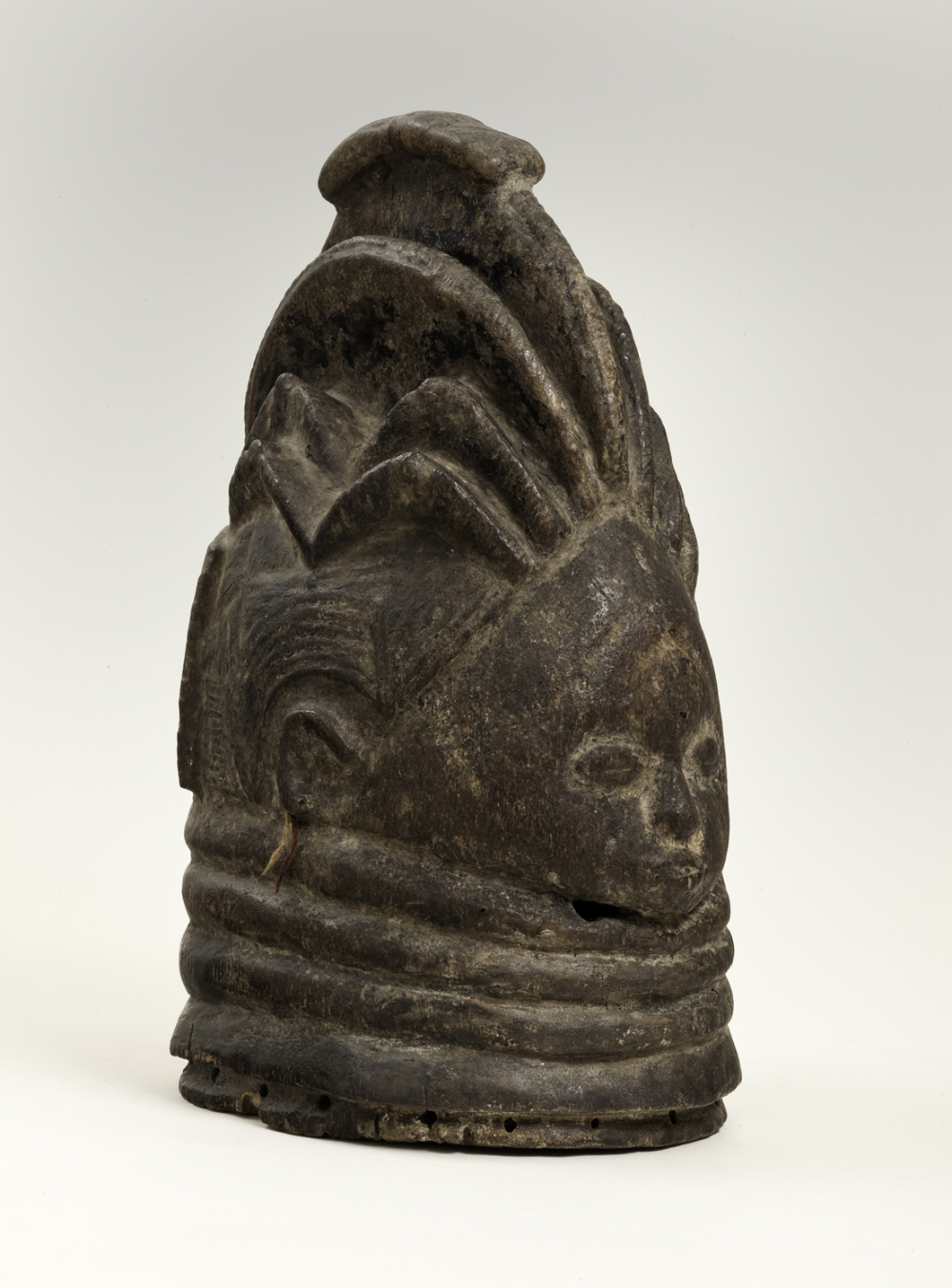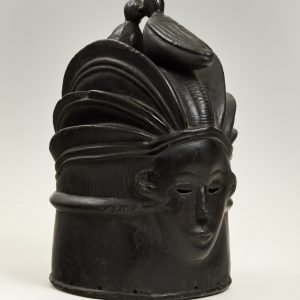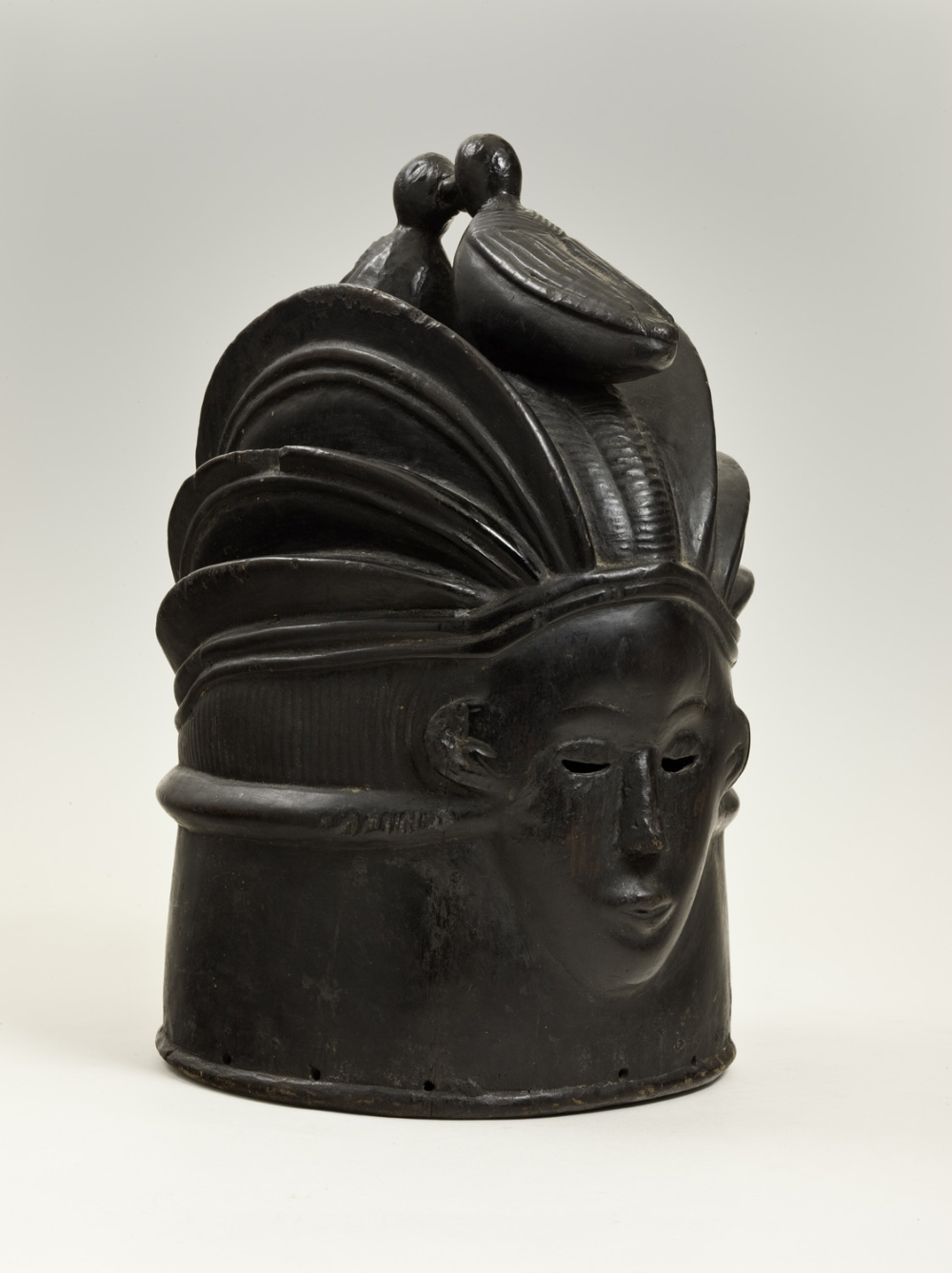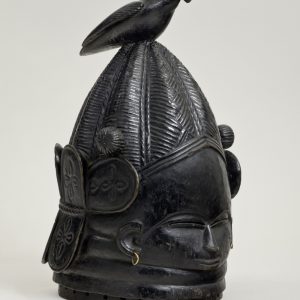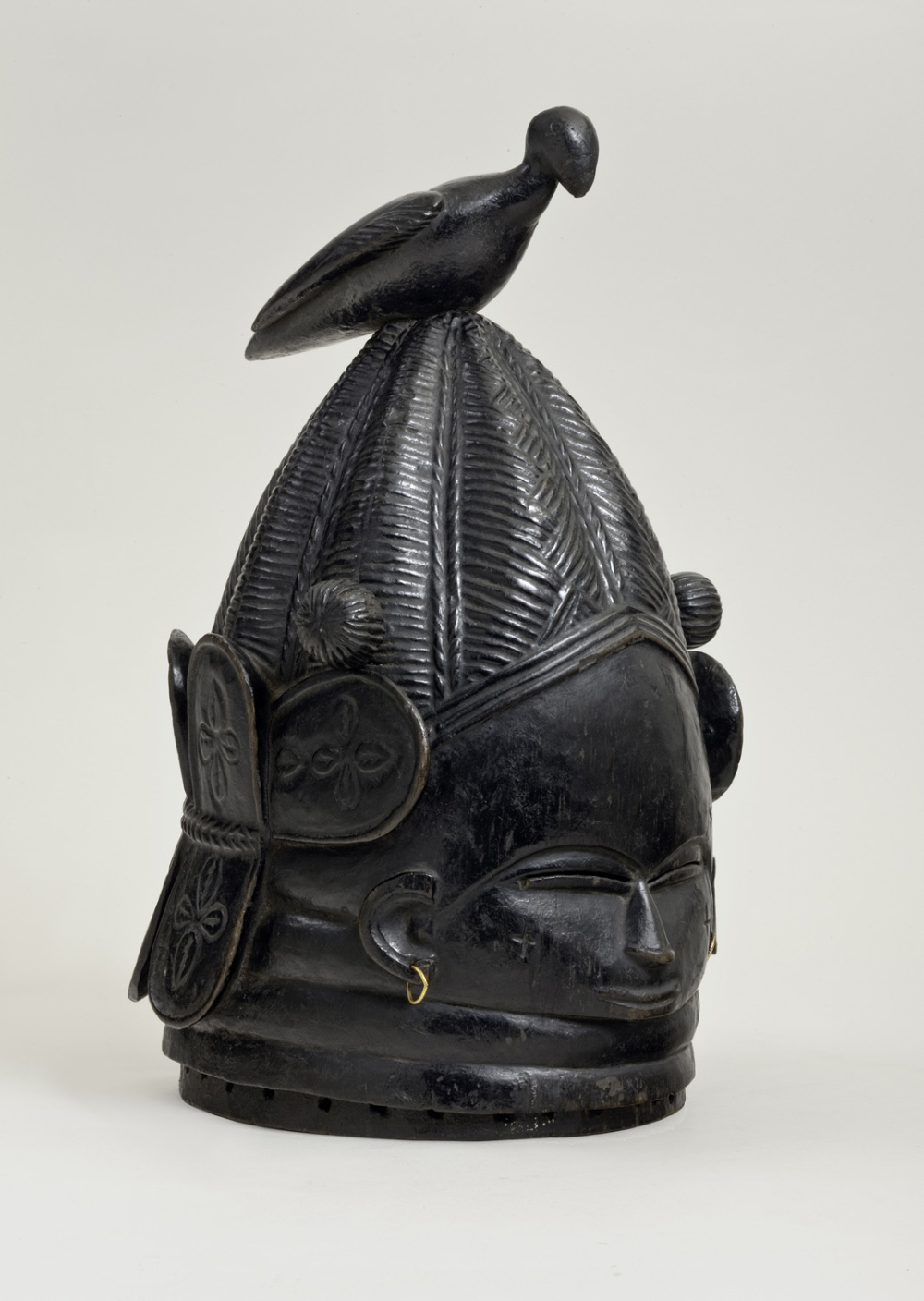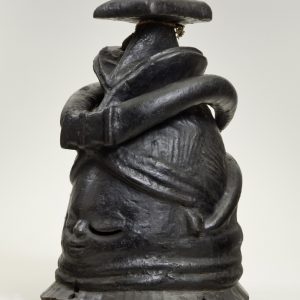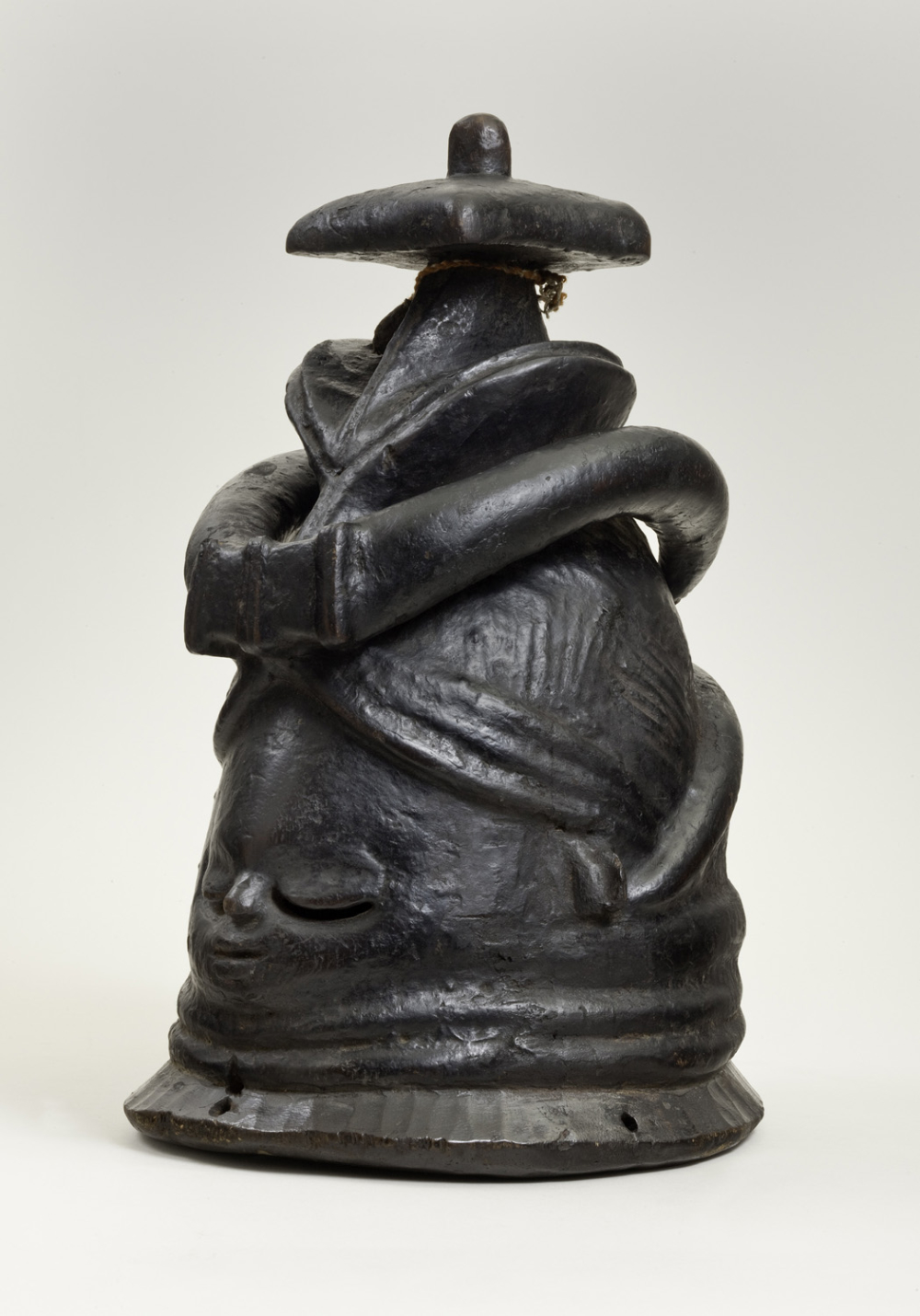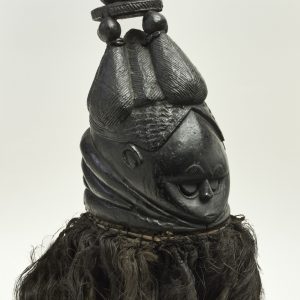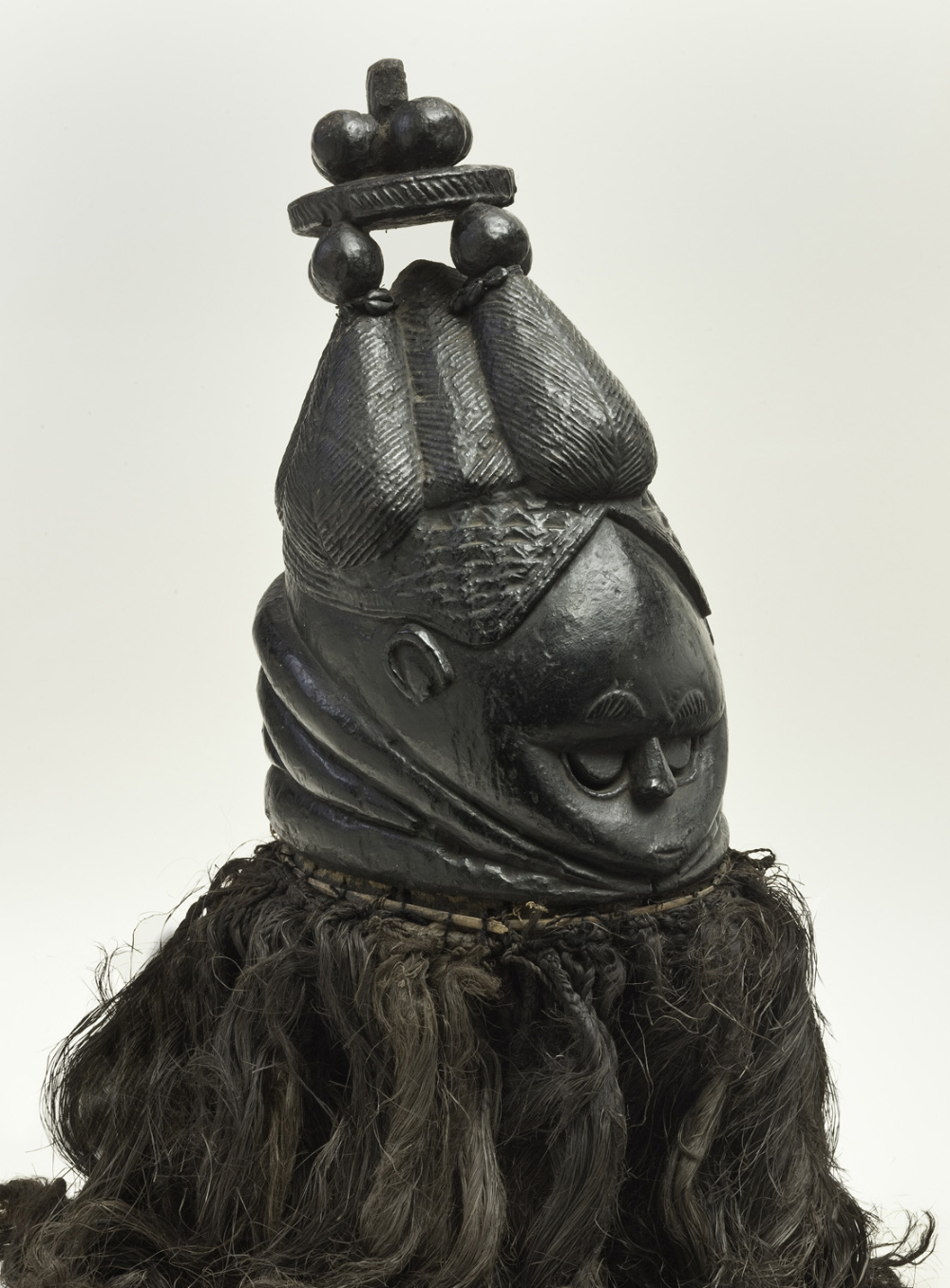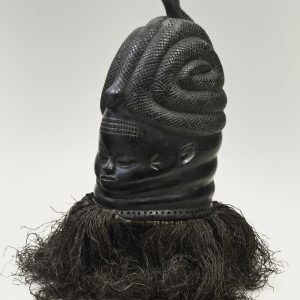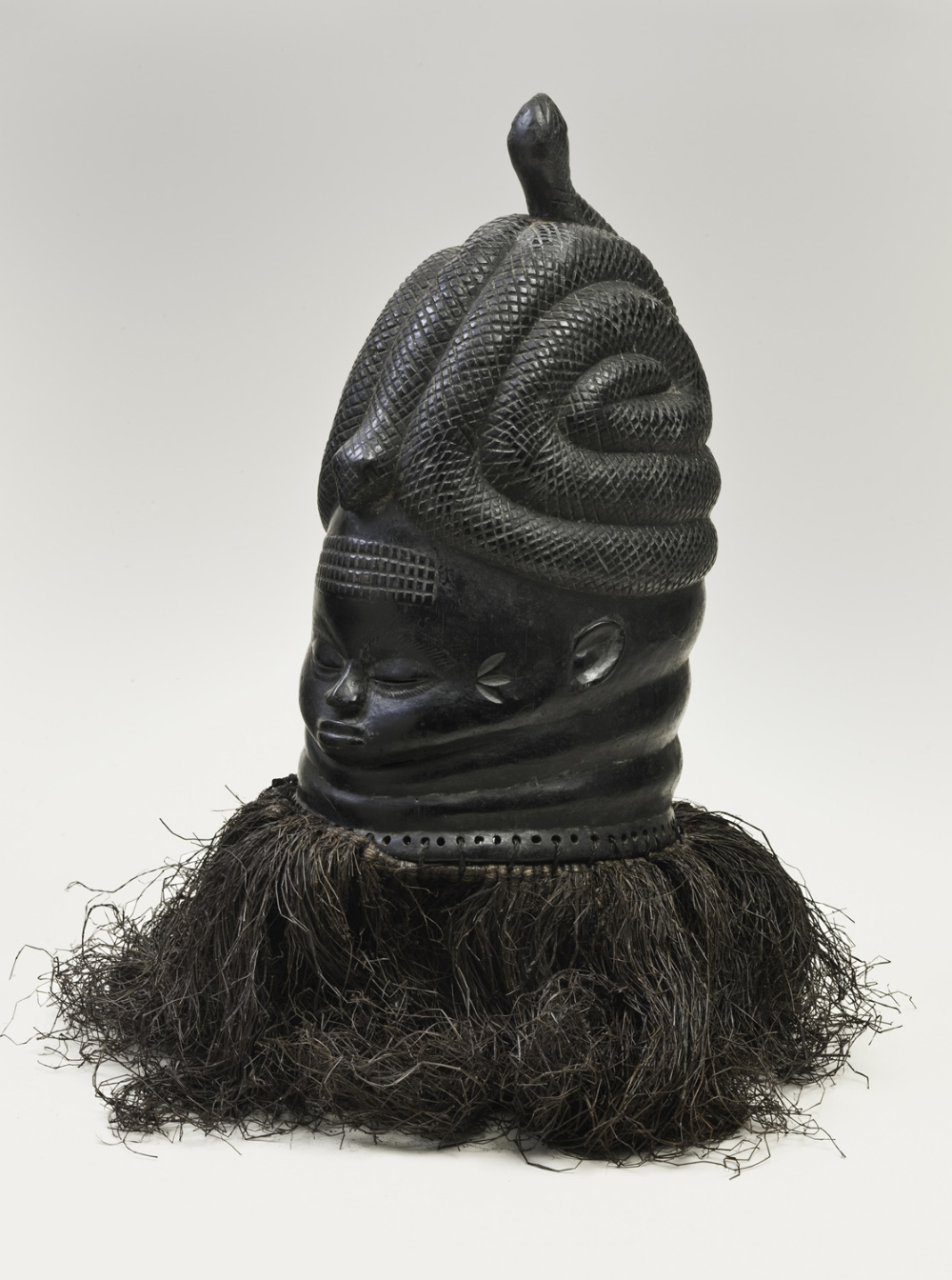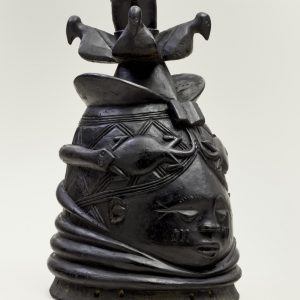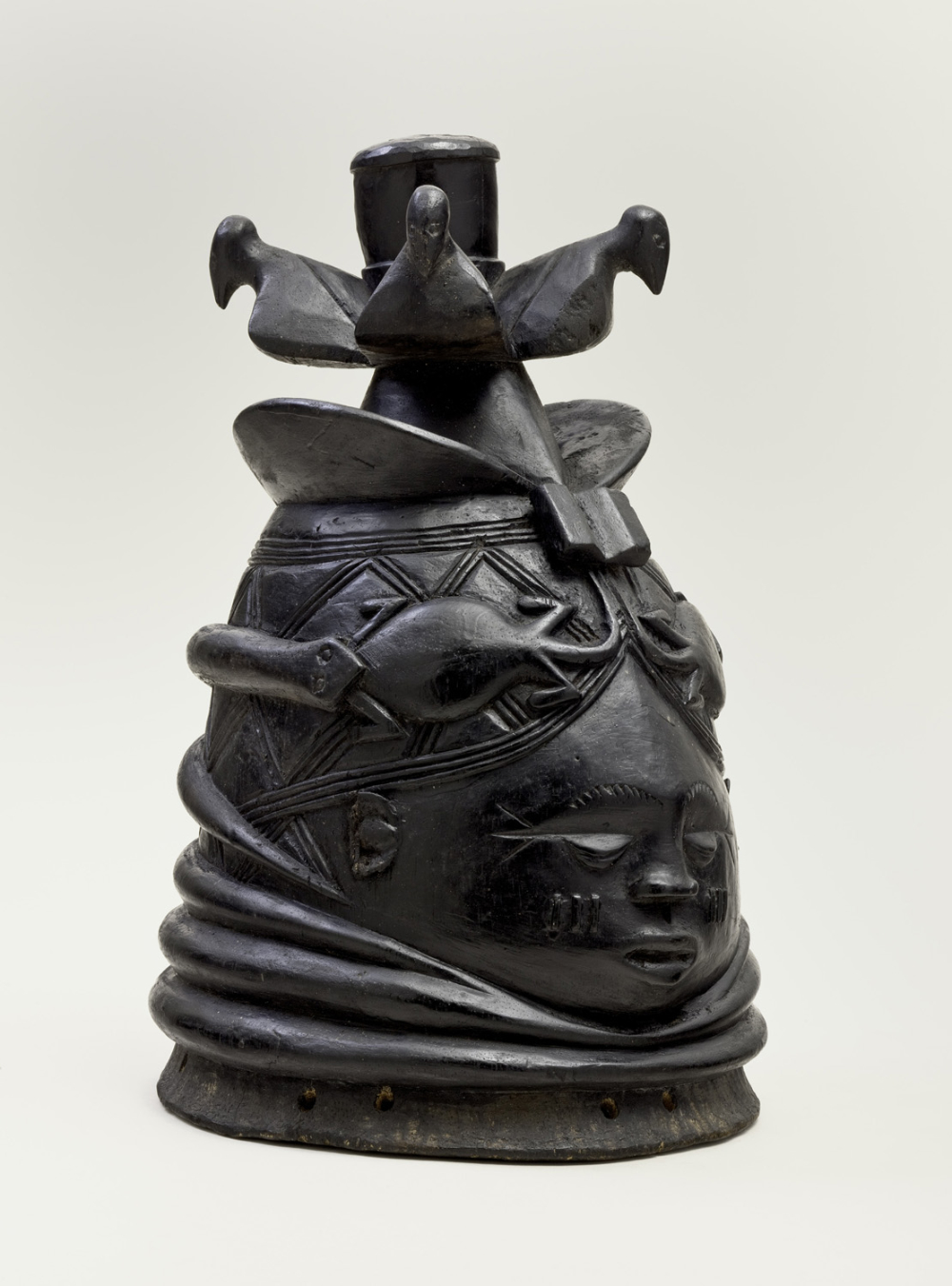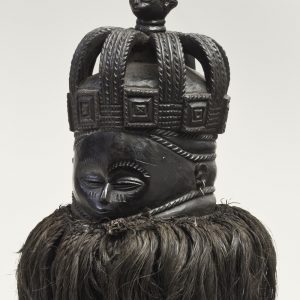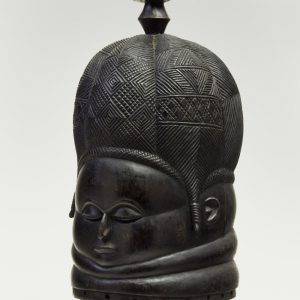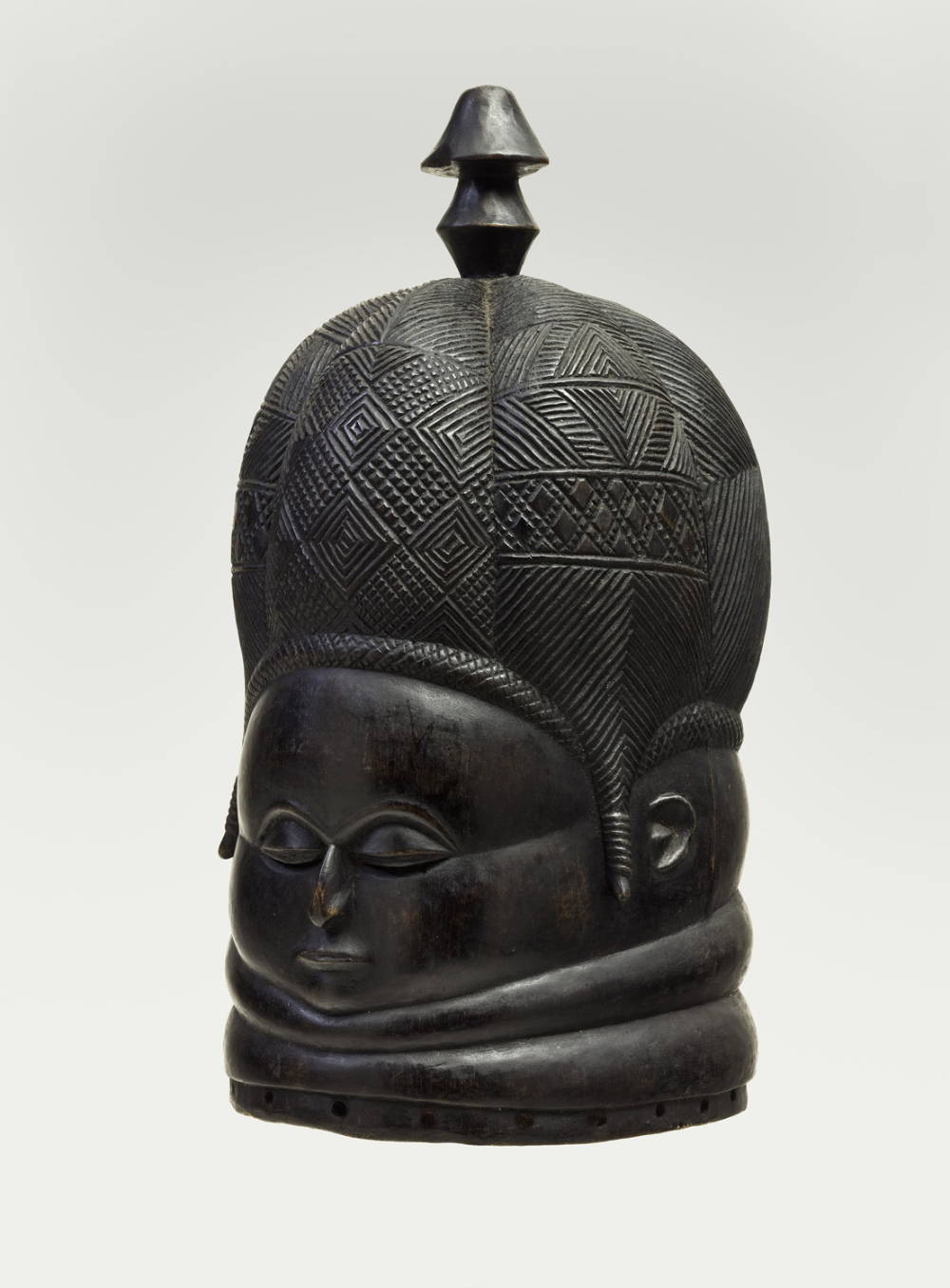The Bundu or Sande Society is a pan-African Association of Women found among several West African groups in Guinea, Liberia, and Sierra Leone. It educates and initiates young girls so as to enable them to assume their place in adult society as wives and mothers and as social and political leaders. Entry into this society confers not only political power but also introduces members to the association’s role in promoting wellness and treating disease. As a result, it is also a medical society that employs both spiritual and physical therapies to help those in need, especially women and children.
Educated in the precepts of physical and spiritual feminine beauty, Bundu members uphold centuries-old standards of behavior and participate in local and regional governance. They also materialize both physical and spiritual values in a masked masquerade that is also the vehicle for contact with the ancestors.
Bundu masks, which are the focus of this exhibition and the catalog that accompanies it, are unique in sub-Saharan Africa in that they are the only ones worn by women in public masquerades. These sowei helmet masks, which are diverse in form, are worn by female masqueraders draped in black raffia who embody the society’s spirit and serve as intermediaries with the ancestors.
This exhibition presents sixty sculptures that display the wonderful stylistic diversity of these masks among the Bassa, Gola, Mende, and Vai peoples of Africa. The catalog that accompanies the exhibition is an outstanding ethnographic contribution to our understanding of this society and its sculptural expressions. In it are illustrated a total of ninety-five sculptures associated with the society. Eighty-four of these are Bundu helmet masks. This represents the largest collection of Bundu society helmet masks ever illustrated in one volume.
This volume is authored by two Africanist scholars, Gavin H. Imperato, and Pascal James Imperato, both with extensive field research experience in Africa. They are also physicians who were initially drawn to the Bundu society because of its vital role as a medical society. Its leaders serve as midwives and also treat the medical problems of women and children. The Imperatos realized early on that the success of modern public health and medical programs depended to an important degree on the support of Bundu society members and leaders.
The authors have enriched their 110-page text with 47 field photographs and detailed discussions of the organization, functions, and belief system of the society. They also describe the complex symbolism of the various stylized forms present on masks. A unique element of their scholarship is their detailed analysis of descriptions of society from the seventeenth century to the present day.
Comprehensive and unique and a wonderful tribute to African women for their roles as societal leaders and healers, BUNDU also represents an exciting appreciation of the beauty of feminine masks in Africa.

